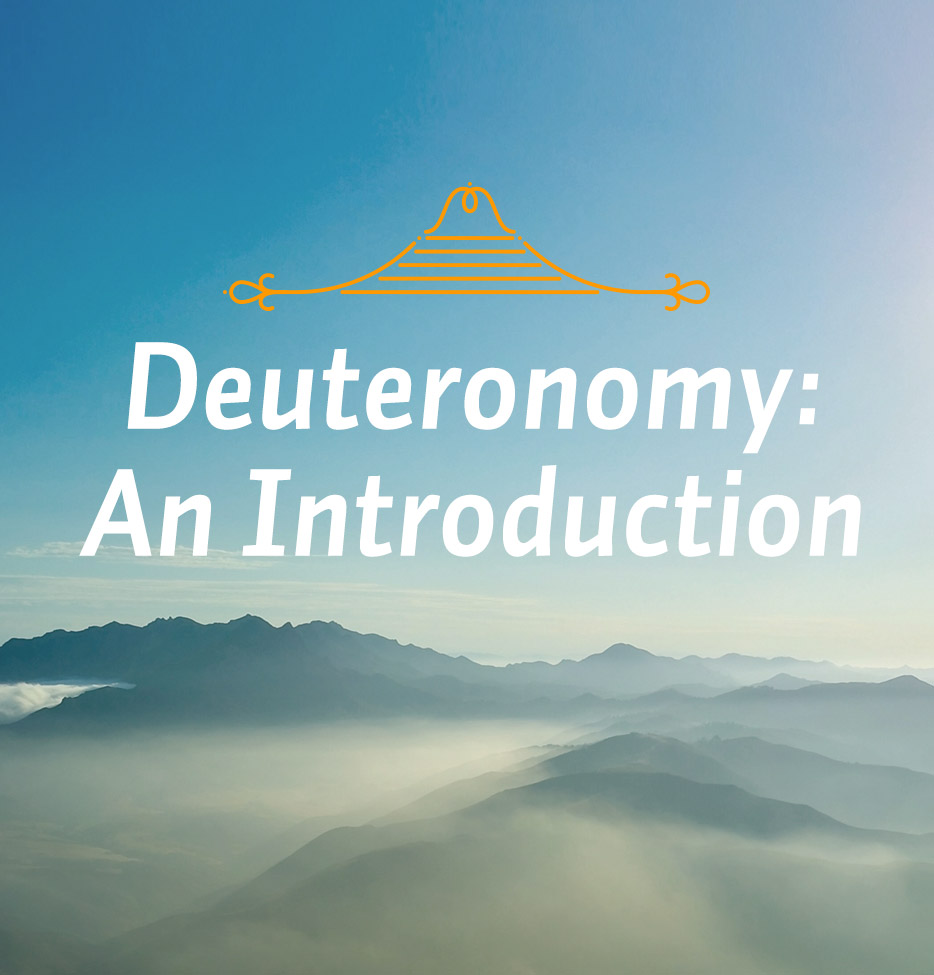This series has been dealing with Moses, and so we will not cover Deuteronomy in great detail. In this week’s studies, I want to introduce this book, and show you how chapters 1-26 fit in with what follows. And then in the next three studies we’ll focus on the very heart of the book in chapter 30, the second song of Moses in chapter 32, and the account of Moses’ death in chapter 34.
At the end of Numbers, the people are poised on the very banks of the Jordan. They are ready to go over and take the promised land. Joshua has already been appointed and commissioned as Moses’ successor. The conquest is near at hand, and we will eventually come to the account of Moses’ death. But we have a whole book to go through before these events.
What is Deuteronomy about? Deuteronomy is a book containing Moses’ last words to the people, passionately pleading with the people on the basis of God’s law that they not forget what He has done for them in the past but that they remain faithful to Him, love Him, and obey Him in order that they might be blessed in the land. Deuteronomy really is a sermon, and if I could put it in other words, it’s actually a second sermon or a series of sermons. The word Deuteronomy is a Latin term, composed of two separate parts: deutero, which means second, and nomos, which means law. So it literally means a second law or a restatement of the law. But it is more than a simple restatement. It is actually a vigorous homiletical application of the law.
It’s really a new beginning in a certain sense. That’s highlighted by another interesting feature of these books that precede it. Exodus, Leviticus, and Numbers all begin with the conjunction “and” in the Hebrew text. That might seem to be a very strange way to begin a book except that, in the context of the Pentateuch, that opening “and” links each of those books with the preceding. So you have Genesis, and Exodus, and Leviticus, and Numbers. You have a break in this pattern with Deuteronomy, and there are some scholars who think that Deuteronomy therefore is the start of a block of material that extends through Judges, and goes to the end of 2 Kings because those books are also linked together by “and.”
If we think of Deuteronomy as a sermon or series of sermons, we have been told where it was given. The opening verse says, “These are the words Moses spoke to all Israel in the desert east of the Jordan—that is, in the Araba,” and then it mentions some of the sites that were associated with it. It was given in a particular place and within a very short space of time.
The theme of the book is in chapter 6. “Do what is right and good in the LORD’s sight, so that it may go well with you and you may go in and take over the good land that the LORD promised on oath to your forefathers, thrusting out all your enemies before you, as the LORD said” (vv. 18-19). We could summarize that by saying that the theme of the book is: “Remember; don’t forget. Obey the Lord your God.”
Deuteronomy is quoted eighty times in the New Testament, in all but six of the New Testament books. One of the better known examples is when Jesus was tempted by Satan in the wilderness. There, Jesus replied to Satan’s temptations with quotations from this book (see Matt. 4:1-11; Luke 4:1-13; cf. Deut. 6:13, 16; 8:3).
Moses’ addresses were given in a relatively short space of time. He began them on the first day of the eleventh month of the fortieth year of the people’s desert wandering. If you go to Joshua 4:19, you find that the people crossed the Jordan on the tenth day of the first month of the following year. That gives us a period of two months and ten days. It took the people three days to make preparations to cross the Jordan, and we are told that they mourned thirty days for the death of Moses. If we subtract these periods, we have a month and seven days left for Moses to deliver the addresses that are found in this book. That’s a remarkable achievement for someone who is one hundred twenty years old. Speaking as a pastor, I think he was working on these addresses in advance. He knew the day was coming. At the proper time and in the right place he gave his sermons.






